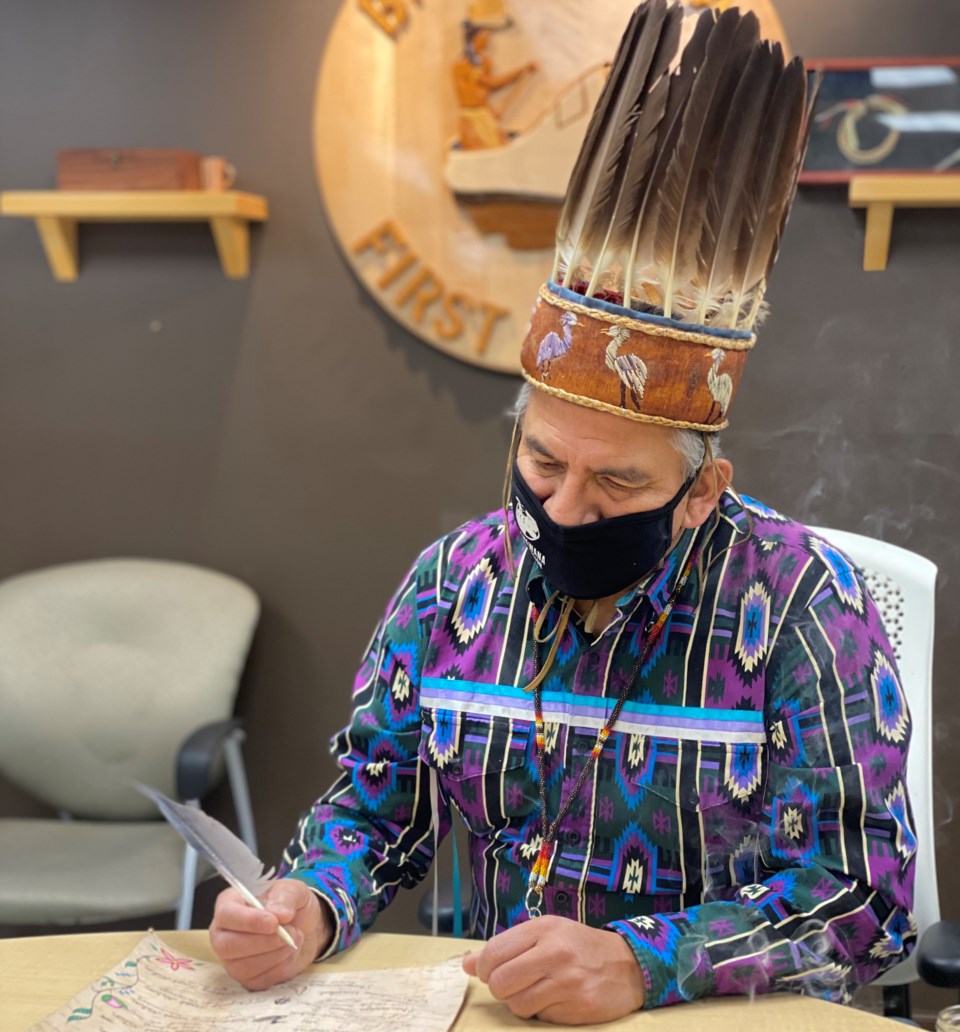Vast forests and peaceful lakes stretch across this land we live on.
It is Robinson-Huron Treaty territory and it reaches from Sault Ste. Marie to Sudbury, North Bay to Parry Sound. It is home to 21 First Nations and many settlers.
As our conversations have shifted to focus on the relationship between Indigenous people and Canada in light of the recent devastating discoveries of unmarked and mass graves that are the legacy of the Residential School system, it is vital that we all understand the land we live on.
This is Robinson Huron Treaty territory and living on it comes with responsibilities for all of us.
Signed in 1850, the Robinson Huron Treaty outlines an agreement for sharing land, waters, and resources. Our First Nations did not surrender their land but agreed to share it in exchange for an annual payment from any resource revenue in the territory. The Treaty also affirms the continued use of the unoccupied territory by the Robinson-Huron Anishinabe beneficiaries for harvesting and other cultural pursuits.
This annual payment — or annuity — is promised to the Treaty beneficiaries, with an augmentation clause that means as resource revenue grows, so does the payment. This annual payment ensures the enduring nature of the agreement between our First Nations ancestors and Canada to share the territory.
The annuity increased only once, rising from $1.60 to $4 in 1874. It has not changed since. It seems highly unlikely that resource revenue from lumber and mining on this land has not grown in the last 147 years. A breach of the Treaty, a breach of honour, and a breach of financial obligations by the Crown led to legal proceedings beginning in 2012.
The case is being pursued in court by the Robinson Huron Treaty Litigation Fund which represents the 21 First Nations of the Treaty area. Our people have honoured our Treaty responsibilities. Now we are asking the Crown to do the same.
Over the past few years, the first two stages of the case have been decided in our favour. The Government of Canada has decided not to continue to drag the case out in court via appeals, but the Government of Ontario has. A third stage will determine the remaining issues, including compensation owed.
This past month, Canada announced that they are prepared to negotiate and settle this case, provided that Ontario also comes to the table.
It is time for Ontario to seek a mandate to negotiate and drop their litigation. Those represented by the Litigation Fund would like to settle this through honourable negotiations rather than litigation. Ontario communities that are paying to foot the bill of these ongoing court cases should also want these unnecessary appeals litigation to stop.
We all benefit from negotiation. The settlement of the Robinson Huron Treaty case will directly grow the local economies in the Treaty territory. The people of these 21 nations are locals, too. We shop in the same local stores and restaurants in North Bay as you and we want to help build strong, vibrant communities and homes as we come back stronger from the pandemic.
This isn’t even a matter of ‘protecting’ taxpayer dollars — or that you, as a taxpayer, will be on the hook. The annuity is a payment from the Crown’s net resource revenues — and it is something that they agreed to do 171 years ago, but they haven’t held up their end of the bargain.
We have inherent rights as Anishinabe people and have never surrendered jurisdiction over our lands and water. Treaties affirm these rights and provide the outline for a framework for peaceful coexistence and sharing of resources, but these can only work if all parties participate.
As people across Canada reflect on what the road to reconciliation really looks like, there is a chance to engage in real action right here in your community. You can call on your government at Queen’s Park to live up to their Treaty responsibilities. Demand that they negotiate, not litigate for all of us to benefit.
We are all Treaty people. Chi-miigwetch.
Chief Dean Sayers, Batchewana First Nation



